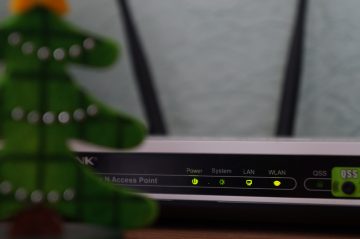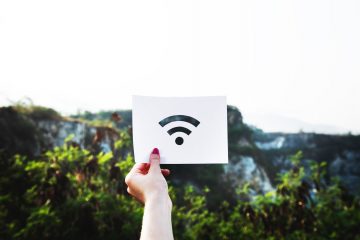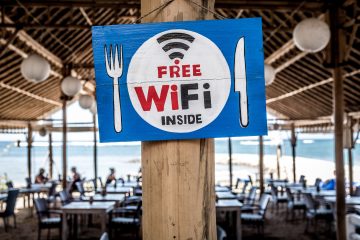Top 5 Ideas to Keep Your Wi-Fi Network Safe From Hackers and the Funniest Router Names

These days everyone uses Wi-fi. Even if you prefer to web surf on your personal computer at home chances are you still have a router so the rest of your friends and family can browse their favorite websites on their phones. With that said, most of us have routers that either not exactly top of the line or a few years old. That's fine if your goal is simple web browsing, you don't need some 500 dollar router with four antennas to open your Facebook profile, but it's still risky. Computer hackers and cybercriminals are becoming increasingly more bold, and with every day we get new reports of hacks across the planet. Now, you may think nobody has anything to gain by hacking your router, but you're wrong. There are all kinds of personal data they could steal and exploit with things like your bank account being the most lucrative.
Let's look at the top 5 ways you can ensure your router's security.
Use a funny a network name.
Why does your wi-fi network name matter? Well, it's simple. Even if it's not explicitly stated in the name itself it can tip off hackers to your network provider, and knowing your provider gives them an advantage. Different providers use different combinations of letters and numbers, which can be a dead giveaway for experienced cybercriminals, so be sure to change the name to something else. It doesn't *have* to be funny, but why not? Here are some examples of humorous network names we found on the internet that you can try out:
- Pennygetyourownwifi (for Big Bang fans)
- This is not the wifi you are looking for
- Turn Wi-Fi Off
- Loading Network…
- LAN of the Lost
- FBI Surveillance Van
- Free Public WiFi (password protected of course)
- The Password is "Gullible"
- I fought the LAN, the LAN won
- Join us or die
- Starfleet Command
- Lord of the Pings
- HEY DAD USE THIS ONE
- Get off my LAN
- Promised LAN
- 2 Girls, 1 Router
- Please Connect for Identity Theft
- Skynet Global Defense Network
- It Burns When IP
Use a strong password.
This one *should* be obvious, but I guess it isn't. According to SplashData, these are the most used passwords in 2017.
- 123456
- Password
- 12345678
- qwerty
- 12345
- 123456789
- letmein
- 1234567
- football
- iloveyou
- admin
- welcome
- monkey
- login
- abc123
- starwars
- 123123
- dragon
- passw0rd
- master
- hello
- freedom
- whatever
- qazwsx
- trustno1
I hope I don't have to point out how bad all of these are. Using popular words or sequential numbers is just asking to have your security breached. A strong password is one that is made up of random combinations of upper and lower case letters, numbers, and symbols. Also, despite what you may have heard size does matter. The longer the password, the stronger it gets. Each added character makes the password exceptionally harder to brute force due to the uncertainty principle. Also, never write down your password. If that seems hard you might want to look into using a password manager for added security and ease of use.
Use correct wireless security protocol.
Wireless Security Protocols are handy tools, which will block uninvited guests from joining your network. They can also encrypt your data while it's being transmitted across the internet. There are two types of security protocols and choosing one depends on your router.
Wired Equivalent Privacy or simply WEP is the first and oldest. It's generally not recommended you use this protocol unless you're using a very old router as WEP has a lot of holes, which attackers could exploit.
Wireless Protected Access 2 aka WPA/WPA2 is the best wireless security protocol available and it's recommended you use it instead of WEP. The only problem is it doesn't work on older routers (made before 2006 to be specific).
Use your firewall.
Most operating systems have a firewall. Use it. It can scan for intruders and block unwanted guests from entering your network. It will monitor your incoming and outgoing traffic and block or allow them depending on the specific settings you've set up.
Use an IP scanner to check for intruders.
If you're worried someone is using your wi-fi network without your permission or knowledge you can use an IP scanner to check who's connecting to your network.








